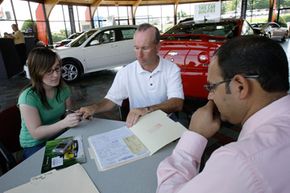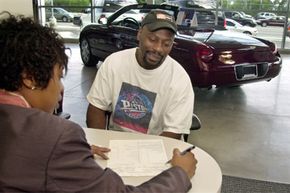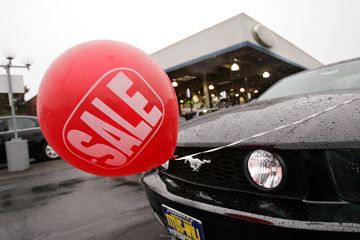So, let's say that you've made the decision to ditch the clunker you're driving and get a new (or new to you) vehicle. You've done the math and used the online payment calculators, and you know what you can afford. You've got your down payment ready, and you know how to haggle the price down to a number that won't make your wallet burst into flames.
Oh, but wait! What's this extra couple of thousand dollars on the final price? In addition to paying for tags and registration, you'll also have to pay taxes on that new car. And depending on the state and local tax rates where you live, it can add a noticeable amount to your purchase price. The taxes can often be folded into your monthly payment, but you definitely don't want to be surprised by them when it's time to sign the paperwork.
Advertisement
Tax rates for vehicles can vary widely between states, and even by a few percentage points within a state. Sales tax usually starts with a state-wide figure that everyone pays. Some counties or municipalities add their own sales tax to the state tax, making it a little higher in some areas than others. There are also excise taxes on certain vehicles, like "gas guzzler" taxes for passenger cars that fall short of U.S. fuel economy standards. At times, the United States also imposes a "luxury tax" on cars with a higher than average purchase price.
Next, find out which taxes you can rely on paying at the time of purchase and how much these taxes might add to your final bill.
Advertisement




